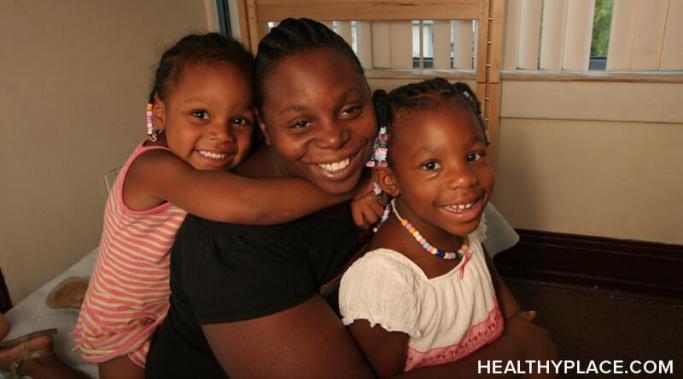Parenting in public can feel like diffusing a bomb with an audience, no protective gear, and no clue which wire to cut. Make one wrong move, and you risk turning a minor tantrum into a five-alarm meltdown, and what's worse, you risk the disapproving glances and tuts of passing strangers. No parent is immune to the fear of judgment but allowing this fear to dictate how your interact with your child in moments of emotional turmoil can have serious consequences for you and your child. So, I have learned to filter out the looks, the eyebrow raises, and the gasps and made a conscious commitment to start practicing what I call tunnel vision parenting.
Coping with Depression
Talk therapy can be an integral part of treating postpartum depression, but it's important to find the right therapist. It can be difficult to work through issues when you don't feel comfortable talking with your therapist. Worse, you may come away feeling hopeless or want to give up on therapy altogether. Use the following tips to help you find the right talk therapist.
The title of this blog is "Coping with Depression." In the past, I've used it to talk about ways to feel productive, beat procrastination, and improve relationships during a depressive episode. But the reality is that some days, "coping" just means surviving through the worst days. So, in honor of World Suicide Prevention Month, I would like to offer some simple tips on how to get through when "getting through" seems impossible.
When you're going through postpartum depression, it can feel like you're lost. It's as if you're seeking mental health through an endless maze of treatment, setbacks, and obstacles. Knowing how to treat your postpartum depression is a big step. When it comes to treatment, I firmly believe in using everything at your disposal. I am all for talk therapy and medication. In fact, I used both of those avenues in my treatment. However, that doesn't mean those are the only two ways you can treat postpartum depression. I found that there were several natural methods that helped me feel better and have more good days.
Depression relapses happen. This is a truth that everyone in depression recovery must accept. But not all relapses are created equal, and there are things you can do to mitigate or even pre-empt a relapse before it becomes a mental health crisis. The key is learning how to recognize the earliest symptoms of depression relapse and treating them with your very own mental health first aid kit before more serious intervention is required.
"Ghosting" is the act of abruptly cutting off all contact with another person without warning, of disappearing from their life without explanation and without a trace. It has been characterized as a cruel and cowardly practice that has a devastating impact on the "ghostee," but I would counter that in some cases, ghosting is the only way to distance yourself from a toxic and unhealthy relationship and the only way to safeguard your mental health when no alternative presents itself.
You've been diagnosed with postpartum depression (PPD). You've started treatment, whether it be therapy, lifestyle changes, and/or medication. You read about one woman who had PPD and was better in a month, so you're ready to tackle this and "return to normal" in a few weeks, right? Not so fast. How long "should" PPD last?
We're taught that playing make-believe is for children -- that as adults, our feet should be firmly rooted in reality. But when dealing with reality becomes too much to handle, a little foray into childish fantasy can be incredibly comforting and very beneficial for our mental health.
The iceberg theory is a frequently cited model of behavior which states that a person's behavior can only be properly understood in the context of the factors that caused it. What a person does is "the tip of the iceberg"-- what we don't see are the emotional, social, cultural, and other factors that lie beneath the surface and cause that behavior.
Parenting is always a divisive topic. Every generation thinks it has found the trick to child-rearing, and every new parent vows to avoid the mistakes their own parents made in raising them. Attitudes towards discipline, attachment, nutrition, education, and play are constantly evolving, but one thing that never seems to change is the idea that crying is a bad thing and that the goal when a child cries is to get them to stop at any cost. This attitudinal hangover from the days when children were to be seen but not heard is incredibly worrying and something we should resist as parents in order to safeguard our children's mental wellbeing.









